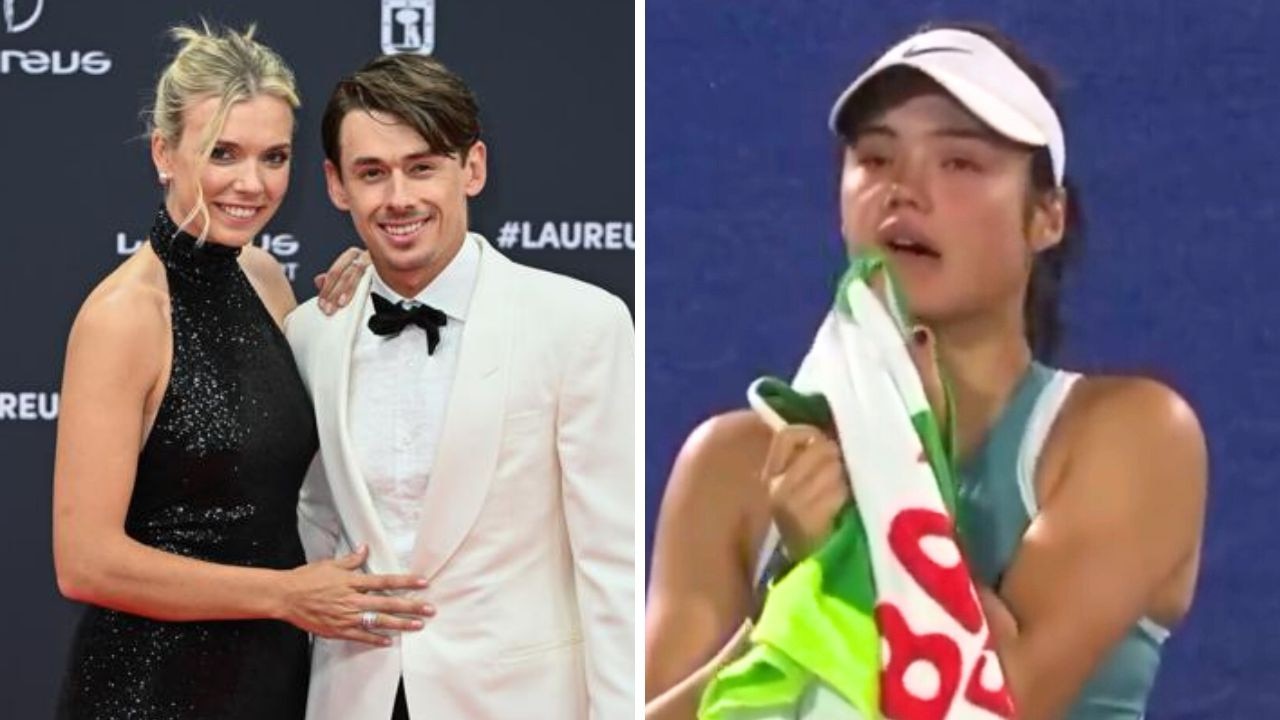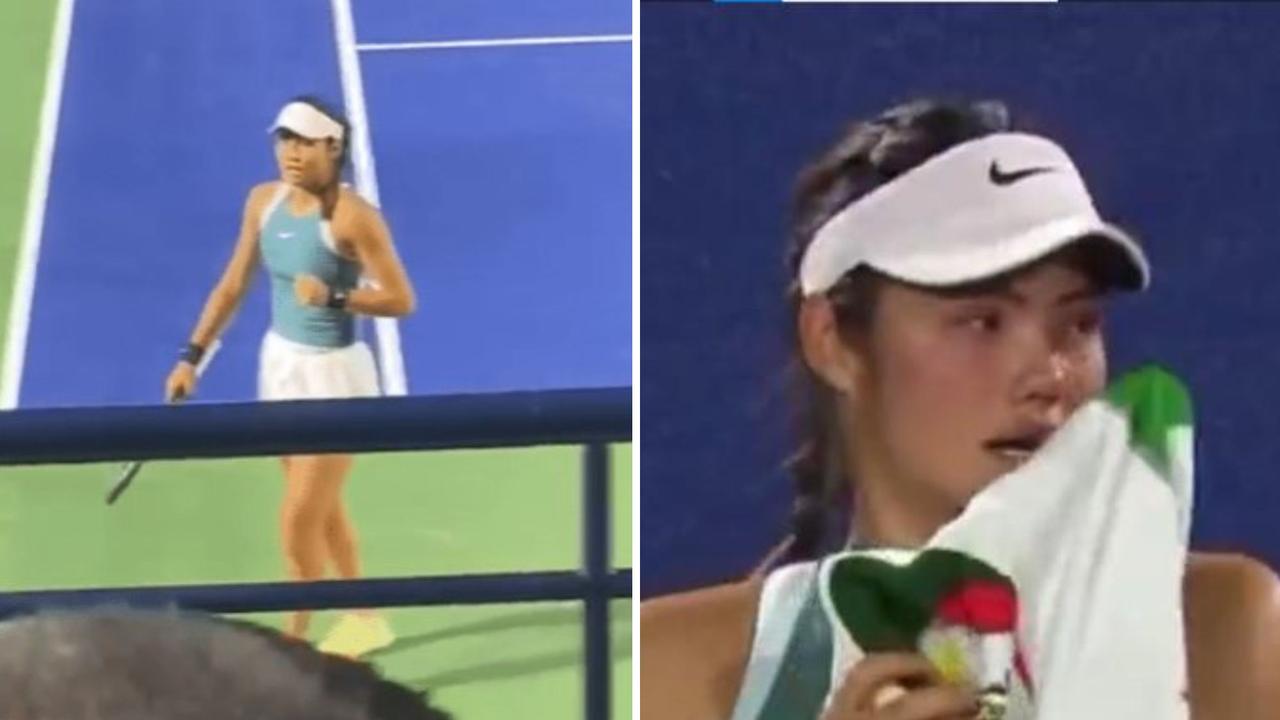Australian Open: Two-week quarantine period catching up with tennis players
It has been an Australian Open like never before for injuries. And it might not be stopping anytime soon. This is why all eyes should be on the top players.
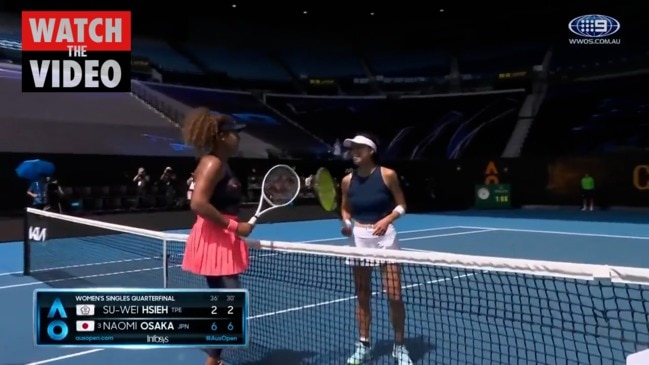
Tennis
Don't miss out on the headlines from Tennis. Followed categories will be added to My News.
The toll of a two-week quarantine has been the absolute reason behind the raft of injuries that have devastated this year’s tournament, according to a leading authority in tennis fitness, as the Australian Open quickly becomes a survival of the fittest.
A lack of match fitness, two weeks of relative inactivity and gruelling contests have all played their part to cruel this year’s tournament – with seeded stars Matteo Berrettini (9th) and Casper Ruud (24) pulling out of their fourth-round matches on Monday with abdominal injuries.
World No. 1 Novak Djokovic has suffered through the past two matches, as had his quarter-final opponent Alexander Zverev with a similar complaint, while third seed Dominic Thiem laboured through his fourth-round defeat to Grigor Dimitrov, and in the women’s draw Johanna Konta and Karolína Muchova have also struggled.
Watch over 40 live ATP Tour tournaments, 40 live WTA Tour tournaments, and every ATP + WTA Finals match live with beIN SPORTS on Kayo. New to Kayo? Get your 14-day free trial & start streaming instantly >
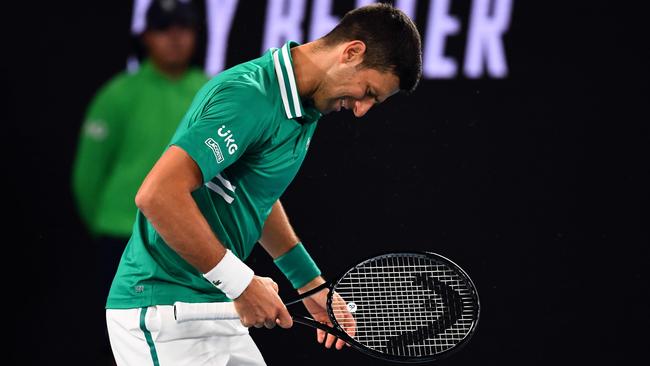
And Sean Fyfe, who has worked for Tennis Australia and on the ATP Tour and with stars Ashleigh Barty, John Millman and James Duckworth in a coaching and physiotherapy capacity, believes the quarantine impact cannot be ignored.
“They haven’t had that intensity of training or match fitness, therefore they get fatigued easier. When they try and back up again, stiffer and sorer, the chances of injuries are higher,” the internationally renowned sports physiotherapist told News Corp on Tuesday.
World No. 2 Rafael Nadal said the decision on whether to play on, especially in a grand slam, is an extremely tough one – referencing playing with a small abdominal strain at the US Open in 2009, where he lost in the semi-finals to Juan Martin del Potro.
“I start with six millimetres or so of strain and I finished the tournament with 26 millimetres,” he said.
“Of course it wasn’t a smart decision.”
That feeling was echoed by Berrattini after his withdrawal.
“I felt something in my ab. I thought that wasn’t something really big, but the next day when I woke up I felt it was big. The doctors told me I can get really worse, so it’s not worth the try,” Berrattini said.
There were 72 players who were forced into a two-week hard quarantine upon arrival in Australia after a COVID-19 scare sent shockwaves through players’ preparations – but even those who avoided the harshest conditions, and able to train five hours a day, were now feeling the effects, Fyfe said.
“In terms of quarantining, one part of it is they don’t have the same equipment so they can’t load their body in their strength and conditioning programs as well,” he said.
“Players, in the week leading into a tournament, would be doing at least one four or five hour session in a week which would replicate a five-set match – but even though they had five hours out of their rooms, those guys in quarantine were only getting one to two hours on court.
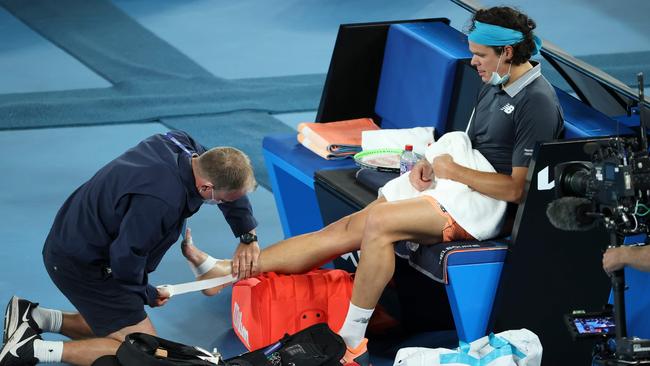
“Decreased time on court, they’re going to get fatigued earlier and when muscles get fatigued they’re less able to absorb shock. They increase stiffness and are less able to handle dynamic loads.”
Worryingly for those heading deep in the second week at Melbourne Park, the likelihood of injuries could increase as the tougher matches take their toll.
“Most of the players early on in the tournament seemed to be going OK in terms of their performance and handling matches,” Fyfe added.
“But it’s where they’ve gone deeper in the tournament, and those who have had tougher matches like Berrettini against (Kevin) Anderson, it’s those ones that have had tougher matches earlier that haven’t been able to back up.”
WOZNIACKI: HEALTH QUESTIONS PART OF BEING TENNIS PRO
Marc McGowan
Caroline Wozniacki says it’s part of a professional tennis player’s job to be quizzed on their health, days after fellow Australian Open champion Victoria Azarenka requested more privacy.
The topic’s sparked debate among players, with world No. 2 Rafael Nadal feeling it’s “not healthy to hide a lot of things” but Novak Djokovic declaring he didn’t feel “comfortable” revealing injury details.
Wozniacki is well placed to discuss the issue, given she was diagnosed with rheumatoid arthritis in 2018, only months after claiming her maiden grand slam title at Melbourne Park.
“I think it’s normal to be asked if there’s something that you can see while you’re on court, and whether that’s a strapped leg or difficulty breathing or dizziness, or whatever it may be,” Wozniacki told the Herald Sun.
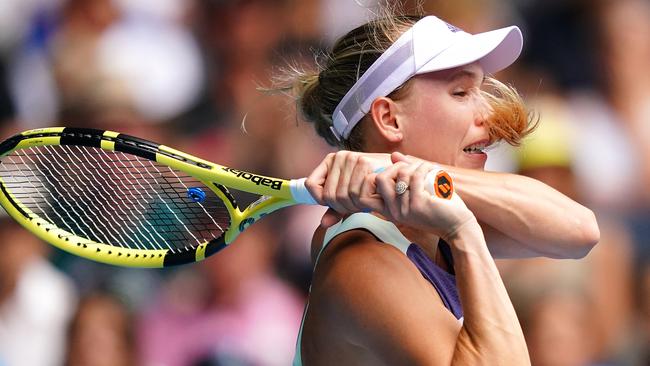
“Then it’s up to the player to decide how much or how little they want to disclose.
“Do you have to? I don’t think you have to, but I think most of the time it’s easier to say a brief statement as to what’s going on, then move on from there.”
Wozniacki announced she was retiring ahead of last year’s Australian Open, playing her final match in the third round of the tournament.
Since then, she’s committed to making a difference for fellow sufferers of rheumatoid arthritis and other chronic inflammatory diseases.
Wozniacki partnered with biopharmaceutical company UCB Australia to launch Advantage Hers, a global campaign designed to raise awareness of the unmet needs for hundreds of thousands of women with these diseases.
The 30-year-old former tennis star had her own struggle being diagnosed, with doctors initially suggesting a range of other causes for her pain, from it being mental to her even being pregnant.
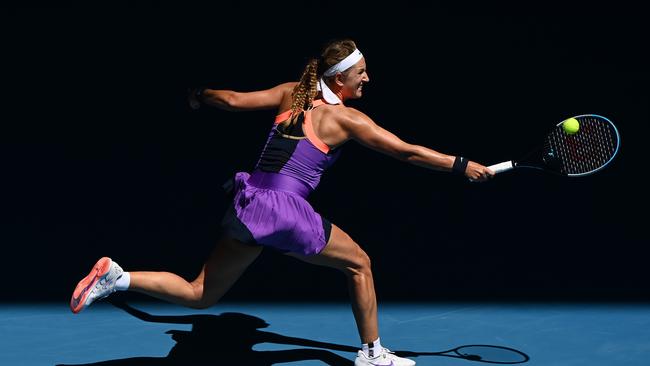
Wozniacki knew something was “really wrong” after enduring experiences where her joints were so sore she couldn’t get out of bed, brush her teeth or lift her hands above her head.
“I finally found a great rheumatologist who listened and diagnosed me. We got on a great game plan and I started feeling better and I just knew we had to raise awareness about this,” she said.
“This was a common problem among people, and especially women, who were scared to speak up, and the longer it takes to get a diagnosis the worse it is and the harder it is to get back on track.”
Wozniacki also highlighted that anyone could suffer from the condition, even a supremely fit tennis player who was ranked second in the world at the time.
“I have close contact with my doctor, and other than that I try to eat healthily and exercise on a regular basis. I’m pregnant now, which is really exciting for me and my new chapter,” she said.
“The new reality is a little different, but it’s exciting and I’m very happy.”
As for this year’s Australian Open, Wozniacki wants to see her close friend Serena Williams win a record-equalling 24th grand slam singles title.
“Serena’s looking fit. I think she’s playing well, I think her outfit is awesome, and it’s great to see her playing at such a high level. I hope that she’ll be able to go all the way,” she said.
“Of course, I know all of Australia is rooting for Ash (Barty) and it would be awesome to see Ash and Serena in the finals.”
Originally published as Australian Open: Two-week quarantine period catching up with tennis players

